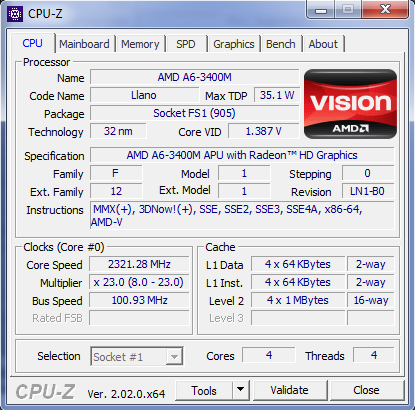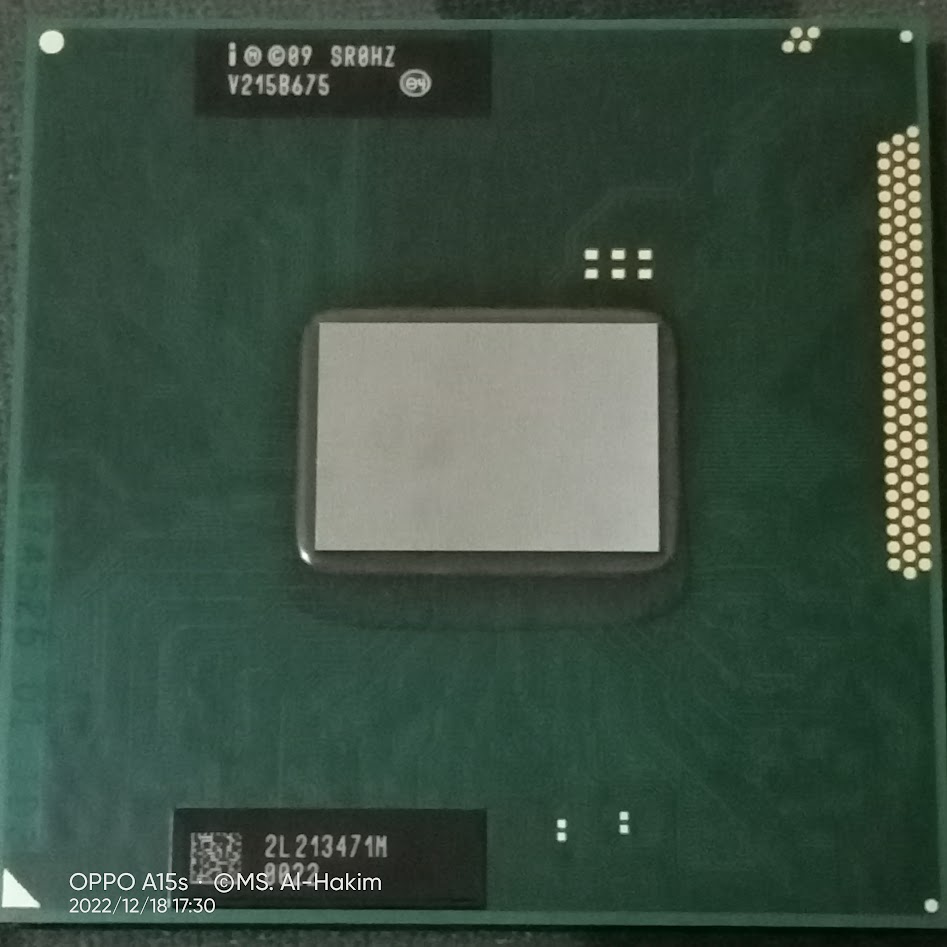Comparing: AMD A6-3400M vs Intel Celeron B815
In this comparison, we analyze two Processors: AMD A6-3400M and Intel Celeron B815, using synthetic benchmark tests to evaluate their overall performance. This side-by-side comparison helps users understand which hardware delivers better value, speed, and efficiency based on standardized testing. Whether you're building a new system or upgrading an existing one, this benchmark-driven evaluation offers valuable insights to guide your decision.
Specification Comparison Table
| Specification | AMD A6-3400M | Intel Celeron B815 |
|---|---|---|
| Architecture | x86 | x86 |
| Technology | 32 nm | 32 nm |
| Clock | 1.4 GHz - 2.3 GHz | 1.6 GHz - - |
| Core/Thread | 4 / 4 | 2 / 2 |
| Segmen | Mobile | Mobile |
Submission Comparison Table
| Benchmark Software | AMD A6-3400M | Intel Celeron B815 |
|---|---|---|
| Cinebench - R15 |
153 cb |
104 cb |
| Cinebench - R20 |
291 pts |
207 pts |
| PiFast |
1min, 14sec, 310ms |
47sec, 490ms |
| SuperPi - 1M |
46sec, 984ms |
24sec, 976ms |
| wPrime - 32M |
27sec, 142ms |
41sec, 44ms |
About Hardware AMD A6-3400M
Launched in mid-2011, the AMD A6-3400M is a mobile processor from the Llano family designed for mid-range laptops. It has 4 cores and 4 threads with a base speed of 1.4 GHz, which can increase to 2.3 GHz thanks to the Turbo Core feature. Built with a 32nm fabrication process, the A6-3400M offers pretty good power efficiency with a TDP of 35W, making it a common choice for mainstream laptops in its day.
In addition to the CPU, the A6-3400M is also integrated with the AMD Radeon HD 6520G GPU, which has 320 shader cores based on the Terascale 2 architecture. This combination of CPU and GPU enables sufficient graphics processing for everyday tasks and light gaming at low resolutions.
In terms of performance, the A6-3400M is capable of handling basic tasks such as browsing, multimedia, and productivity applications. However, compared to the same generation of Intel Core i3 processors, its performance is less competitive especially in single-threaded applications.
Hardware Tested:
Device: Lenovo Sabine B475
RAM: 2GB DDR3
OS: Windows 7
Thursday, 24 November 2022 05:29:20 | Update: 1 week ago
About Hardware Intel Celeron B815
Released in 2012 as part of the Sandy Bridge family, the Intel Celeron B815 is an entry-level mobile processor aimed at cost-effective laptops. It has 2 cores and 2 threads, with a clock speed of 1.6 GHz without Turbo Boost or Hyper-Threading support.
With 32nm fabrication, the Celeron B815 has a TDP of 35W, which is quite high for a processor of its class. For graphics, the processor uses Intel HD Graphics 2000, which has a base clock speed of 650 MHz and can increase up to 1 GHz in Boost mode.
In daily use, the Celeron B815's performance is sufficient for light tasks such as browsing, document processing, and 720p video playback. However, since it lacks technologies such as Hyper-Threading and Turbo Boost, its performance is quite limited for multitasking and heavy applications.
Hardware Detail:
Device: SAMSUNG 300E4Z
RAM: 4GB DDR3 Dual Channel
OS: Windows 7
Sunday, 27 November 2022 02:25:40 | Update: 1 week ago


